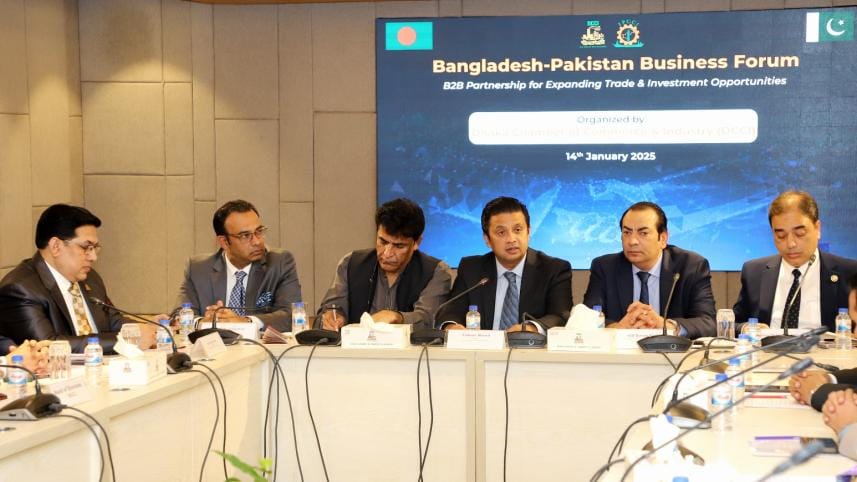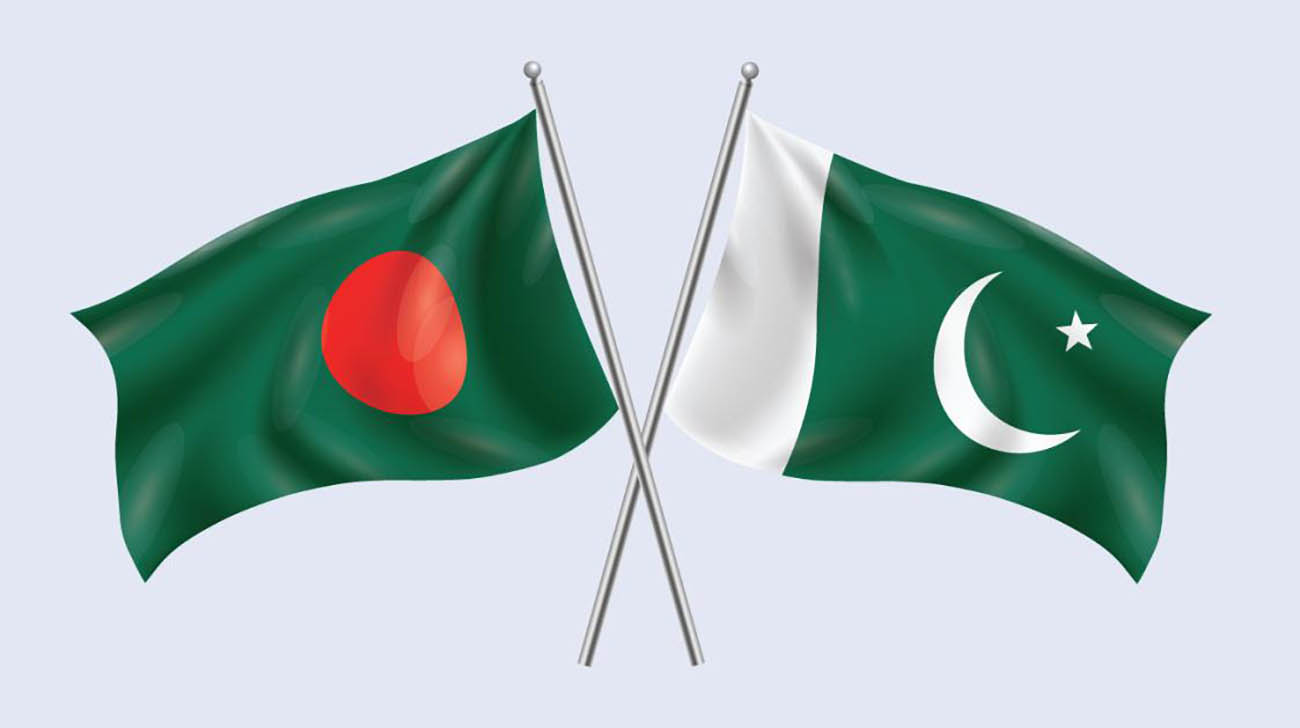Bangladesh-Pakistan trade yet to reach expected level

Bilateral trade between Bangladesh and Pakistan has not reached the expected level as the two countries face significant challenges, including non-tariff barriers and tariff disparities, said Taskeen Ahmed, president of the Dhaka Chamber of Commerce and Industry (DCCI).
He made this comment during a visit by a business delegation from the Federation of Pakistan Chambers of Commerce and Industry (FPCCI) to the DCCI office. The delegation attended the "Bangladesh-Pakistan Business Forum" today with a view to boosting bilateral trade and investment.
During the fiscal year 2023-2024, Bangladesh imported goods worth $627.8 million from Pakistan while exporting goods valued at $61.98 million, he said.
Resuming direct flights between Dhaka and Karachi and introducing shipping routes would facilitate smoother trade, he added.
To unlock the full potential of bilateral trade, both nations could consider signing a bilateral trade agreement, such as a free trade agreement or a preferential trade agreement, he suggested.
Sectors such as agriculture, cement clinkers, leather goods, surgical instruments, chemicals, IT, and public health management offer significant opportunities for joint initiatives, Ahmed opined.
Atif Ikram Sheikh, president of the FPCCI, noted that despite the vast potential, bilateral trade has not yet reached the desired level.
He mentioned that about 55 percent of Pakistan's total exports to Bangladesh come from the textile and apparel sector, while most of Bangladesh's exports rely on the readymade garment sector. This highlights the scope for diversifying the range of products involved in import-export activities, he added.
Sheikh urged Bangladeshi entrepreneurs to import more agricultural products, rice, ceramics, and other goods from Pakistan.
He also recognised Bangladesh's recent advancements in information technology and mobile financing. Sheikh proposed that the two countries collaborate on joint investments, particularly in the IT sector.
Additionally, he encouraged Bangladeshi exporters to use Pakistan as a corridor for exporting goods to other countries. He emphasised that developing infrastructure in the logistics sector would expedite both exports and imports.
Syed Ahmed Maroof, high commissioner of Pakistan to Bangladesh, remarked that the movement of goods between the two countries by sea has recently commenced. He expressed optimism that if trade and investment activities continue to grow, bilateral trade could reach $3 billion within the next two to three years.
Razeev H Chowdhury, senior vice-president of the DCCI, pointed out that both countries have a large pool of young and innovative individuals, particularly in the IT sector.
To harness this potential, he urged Pakistani IT entrepreneurs to invest in Bangladesh's hi-tech parks.



 For all latest news, follow The Daily Star's Google News channel.
For all latest news, follow The Daily Star's Google News channel. 
Comments